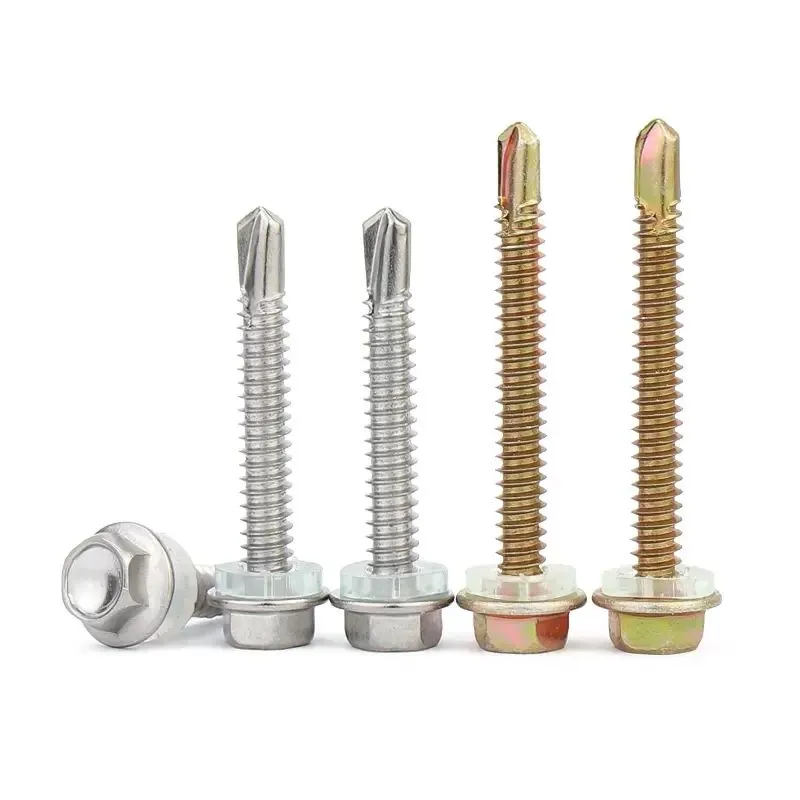

self tapping wall screws
Oct . 19, 2024 10:49 Back to list
self tapping wall screws
The Versatility and Efficiency of Self-Tapping Wall Screws
In modern construction and DIY projects, the importance of choosing the right fasteners cannot be overstated. Among the various types of fasteners available, self-tapping wall screws have gained significant popularity due to their versatility, efficiency, and ease of use. Understanding the features and benefits of self-tapping wall screws can significantly enhance your project outcomes, whether you are a professional contractor or a DIY enthusiast.
What are Self-Tapping Wall Screws?
Self-tapping wall screws are specialized fasteners designed to create their own hole as they are driven into materials. Unlike traditional screws that require a pre-drilled hole, self-tapping screws can penetrate wood, metal, and plastic substrates without additional preparation. This ability to tap threads into the surrounding material makes them an ideal choice for various applications, especially in wall installations.
Types of Self-Tapping Wall Screws
Self-tapping wall screws come in several varieties, catering to different materials and applications. Some common types include
1. Sheet Metal Screws Designed for fastening metal sheets, these screws feature sharp threads that can slice through thin metal easily. Their corrosion-resistant coatings make them suitable for outdoor use.
2. Wood Screws Specifically engineered for use in wooden structures, these screws have a pointed tip that allows them to penetrate wood fibers without splitting. They provide a strong hold and are often used in cabinetry and framing.
3. Plastic Screws These screws are crafted for use in plastic materials. They prevent the risk of overtightening, which can lead to cracking or damage of the plastic.
4. Hex Head Screws Often used in heavy-duty applications, hex head screws require a wrench for installation. They are commonly used in structural projects and equipment assembly.
Advantages of Using Self-Tapping Wall Screws
1. Time-Saving Installation One of the most significant benefits of self-tapping wall screws is their ease of use. Since they do not require pre-drilling, installation time is greatly reduced. This efficiency can lead to faster project completion and lower labor costs.
self tapping wall screws

2. Strong Holding Power Self-tapping screws create their own threads, which allows for a strong grip within the material. This feature is especially beneficial when working with materials that might otherwise split or crack when using regular screws.
3. Versatility These screws can be used for a variety of applications, making them suitable for both indoor and outdoor projects. From drywall installation to securing metal plates, the versatility of self-tapping screws is unmatched.
4. Reduced Risk of Damage Since there is no need to pre-drill, there is a limited chance of causing damage to the materials being fastened. This is particularly important when working with delicate materials.
5. Cost-Effective Solution With reduced labor time and fewer tools required for installation, self-tapping wall screws can be a more cost-effective solution for fastening needs. Their durability also means less frequent replacements and repairs.
Best Practices for Using Self-Tapping Wall Screws
1. Select the Right Type and Size Choose the appropriate type of self-tapping wall screw based on the materials you are working with. Ensure the size is suitable for the thickness of the material to achieve the best results.
2. Use the Right Tool While self-tapping screws can be driven in manually, using a power drill or impact driver will increase efficiency and ease of installation.
3. Maintain Proper Torque It’s important to avoid over-torquing, which can strip the threads or damage the material. Knowing when to stop is critical for achieving a secure hold.
4. Consider the Environment Depending on the environment, consider using screws with additional corrosion resistance for outdoor applications, ensuring longevity and performance.
Conclusion
Self-tapping wall screws are an indispensable tool in construction and DIY projects, offering a combination of efficiency, strength, and versatility. Their ability to simplify the fastening process, while providing robust holding power, makes them a preferred choice among professionals and amateurs alike. By understanding their features and following best practices, users can optimize their applications for a wide range of projects, leading to successful and durable installations. The future of construction is easier, faster, and smarter, thanks to innovations like self-tapping wall screws.
Latest news
-
High-Strength Hot Dip Galvanized Bolts - Hebei Longze | Corrosion Resistance, Customization
NewsJul.30,2025
-
Hot Dip Galvanized Bolts-Hebei Longze|Corrosion Resistance&High Strength
NewsJul.30,2025
-
High-Strength Hot-Dip Galvanized Bolts-Hebei Longze|Corrosion Resistance&High Strength
NewsJul.30,2025
-
Hot Dip Galvanized Bolts-Hebei Longze|Corrosion Resistance&High Strength
NewsJul.30,2025
-
Hot Dip Galvanized Bolts - Hebei Longze | Corrosion Resistance, High Strength
NewsJul.30,2025
-
High-Strength Hot Dip Galvanized Bolts-Hebei Longze|Corrosion Resistance, Grade 8.8
NewsJul.30,2025

